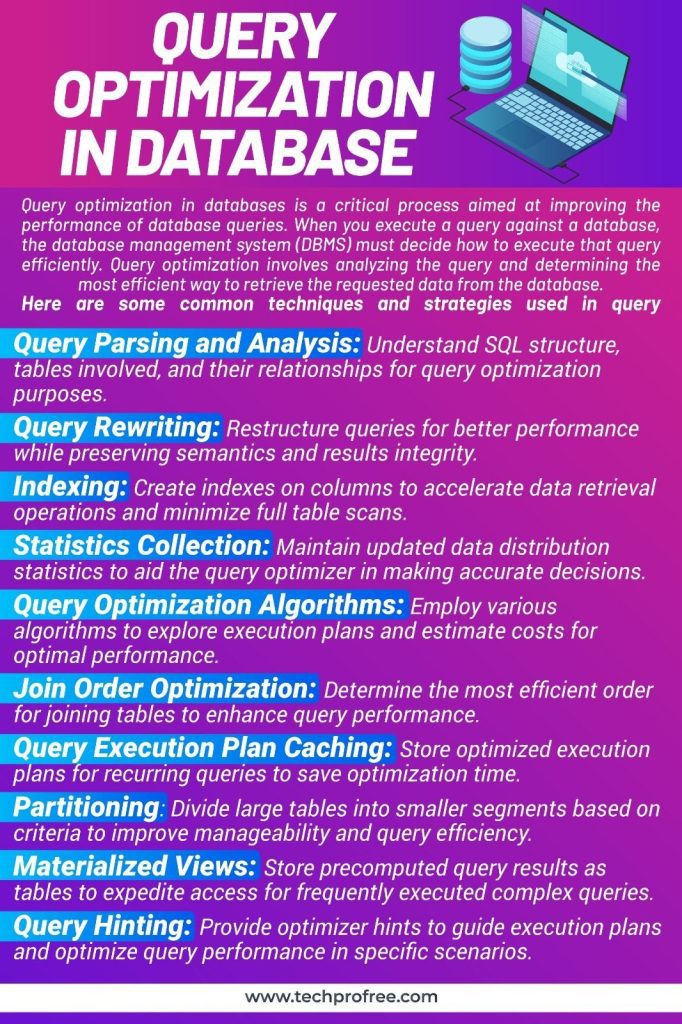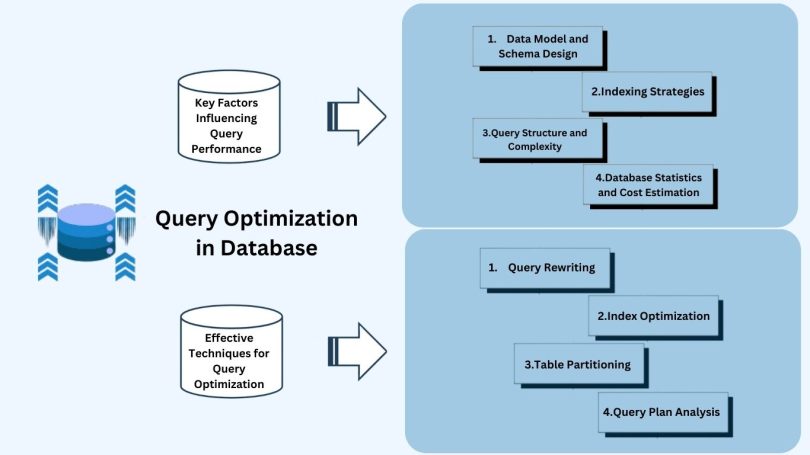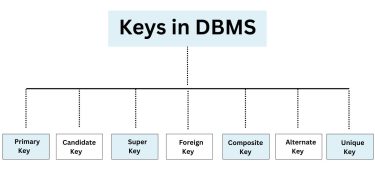Query optimization in databases is essential for improving the performance of SQL queries while minimizing resource consumption. As data continues to grow, optimizing queries becomes crucial to ensure fast and efficient data retrieval, helping businesses maintain smooth application performance and user satisfaction .Resourceful data retrieval is the core of commercial organizations that intend to remain competitive in the current business environment. As the volume of data is increasing exponentially. The optimization of database queries has become one of the most critical aspects of database management.
Query optimization refers to an ordered process which is designed to improve the performance of database queries by lowering resource consumption and boosting productivity. This exposition elaborates on the fundamental concepts of query optimization and introduces tools that can be used to boost database performance.
Understanding Query Optimization in Database
Query optimization in a database is a sophisticated process of choosing the most optimal execution plan for a particular query. When a user sends a query to a database, it is the database management system that plays the central role of deciding the most optimal way to execute that query. This multi-faceted process involves considering a number of factors . including the “availability of relevant indexes”, “distribution patterns of data” and “the complexity of the query itself”, in order to select the most time-efficient means for data retrieval.
The main aim/goal of query optimization is to minimize the amount of time as well as the resources needed for processing of the query. which in turn improves the performance metrics of the database system.
The effect of query optimization on the performance of an application can significantly increase the application response time and enhance the end-user experience.
Significance of Query Optimization
An example could be a busy marketplace setting where people search for particular items in the middle of so many products. The slow and inefficient search mechanism that results in long queues, unhappy customer service and revenue loss can be equated to a bottleneck in the database system. Slow database queries can cause the website to slow down, disturb application workflows, and negatively affect user interactions.
By query optimization, an array of benefits is garnered, including:
Expedited Response Times
The queries are competent at retrieving data, which results in user satisfaction because the information is provided promptly and meet the application’s requirements.
Diminished Resource Utilization
The efficiency with which queries are executed translates into reduced “CPU”, “memory”, and “I/O usage”, thus affecting cost reduction and increasing the overall system performance.
Enhanced Scalability
The well-tuned queries are skillful in maximizing the functionality of the pre-enlarged databases and in meeting the growing workloads, thereby shielding the database infrastructure from future expansions.
Toolbox Used for Query optimization
Consider the database as the complex labyrinth of information in which the query optimizer plays the role of the wise guide, choosing the most suitable path of execution for the query.
The optimizer employs a variety of mechanisms to accomplish this task, such as:
Data Scrutiny
By engaging in a thorough analysis of data distribution, indices and inter-table relationships, the optimizer identifies the fastest way to obtain the desired data.
Cost Estimation
The optimizer makes use of a keen eye that is similar to an experienced shopper to analyze different execution plans; the execution plans are evaluated for resource costs including “table scans” and “data comparisons”.
Heuristics and Regulations
With previous experience and already defined guidelines, the optimizer passes along complex query structures effectively, similar to an experienced librarian who is well versed in the art of finding the best search paths.
User Empowerment in Query Optimization
During the optimizer endeavors diligently, users can augment optimization endeavors by formulating queries judiciously:
Discerning Data Typology
The most suitable data types by the intrinsic nature of the data, working in parallel with the use of fitting tools for the particular tasks, contribute to the efficiency of querying.
Indexing Strategies
Bookmarking the favorite library volumes works in the same way as indexing does. Indexing provides speed to database operations which makes data retrieval quicker.
Precision in Clause Formulation
Precision in query formulation, which is the search of particular conditions rather than the traversal of the whole data, looks like the strategic approach of searching only some genres in a library.
Astuteness in Join Operations
Different join types stem from different strengths. Performing the most appropriate join type which fits the query requirements, analogous to searching for books authored by the specified authors or published by certain publishers, ensures the further optimization goal.
Clarity and Conciseness
With the precision of the phrase and the brevity, we make the query simpler so that the optimizer is not perplexed by it. In this way, it is more like saying “Clear instructions help librarians to find materials more easily”.
Key Determinants/Factors Influencing Query Performance
Data Model and Schema Design
The primary cornerstone of efficient query execution can be found in the “pristine data model” and “schema”. The mainstay of this approach is well-designed tables which consist of proper normalization, effective indexing and thoughtful partitioning strategies.
Indexing Strategies
Indexes act as catalysts in the process of querying by making data retrieval quick and efficient. Proper indexing of columns and careful maintenance of index statistics are both critical components of query optimization to be considered.
Query Structure and Complexity:
There exist underlying complexities and sophistication in the query construction that directly affect the performance results. “Streamlining complex queries, minimizing join operations and optimizing predicate filters” represent effective tactics to be implemented to achieve considerable improvement of performance metrics.
Database Statistics and Cost Estimation
Statistical accuracy of the data concerning distribution and cardinality is the key factor for implementing knowledgeable decision-making within the query optimization context.
Both the “update of statistics” and “the freshness of data” are the necessities for the query performance to be optimal.
Effective Techniques for Query Optimization
Numerous methodological approaches can be utilized to optimize database queries effectively, including the following…
Query Rewriting
The strategic restructuring of queries, in such a way that unnecessary operations are eliminated and the execution paths are made more efficient. It can be considered a viable approach towards performance improvement. “Subquery optimization”, “query flattening” and “query decomposition” are among the numerous techniques that are available for query rewriting.
Index Optimization
The careful look at and the optimization of index utilization are the most essential thing for improving query results. This includes designing specific “indexes”, “removing useless indexing methods” and “fine-tuning” the existing indexes that use real query patterns as the basis.
Table Partitioning
Decomposing large tables into smaller fragments can significantly enhance query speed by limiting the amount of data scanned during execution. Systems like “range partitioning,” “list partitioning,” and “hash partitioning” are tailored to the dataset’s unique features to optimize performance.
Query Plan Analysis
The study of execution plans, generated by the database optimizer, opens up a wide window for understanding the nuances and dynamics of query performance.
A fine understanding of query execution paths and the identification of performance bottlenecks are precursors to the selection of the best-tuning scenario that will yield the best performance.

SQL Query Optimization Checklist
- Use Appropriate Data Types
- Avoid Using SELECT *
- Leverage Indexing
- Minimize Joins and Subqueries
- Monitor Execution Plans
- Use LIMIT/OFFSET for Pagination
- Optimize WHERE Clauses
- Avoid Wildcard Characters
- Utilize Query Caching
- Partition Large Tables
- Test During Off-Peak Hours
Final Thoughts
As we conclude our exploration of the intricate world of query optimization, remember that a well-tuned database can produce the desired information quickly and efficiently just like a well-tuned engine. The optimizer query that acts as a guide enables you to write better queries and enhance your data utilization. Follow the resolutions that we have talked about, try out different things and don’t be afraid to go deeper. Just the same as any worthwhile voyage, you should keep learning on the path to improve query optimization. But with dedication and curiosity, you can transform your database into a powerful asset, enabling you to make data-driven decisions with confidence and speed. So, go forth, optimize your queries and see the magic of efficient data retrieval.




Leave a Comment